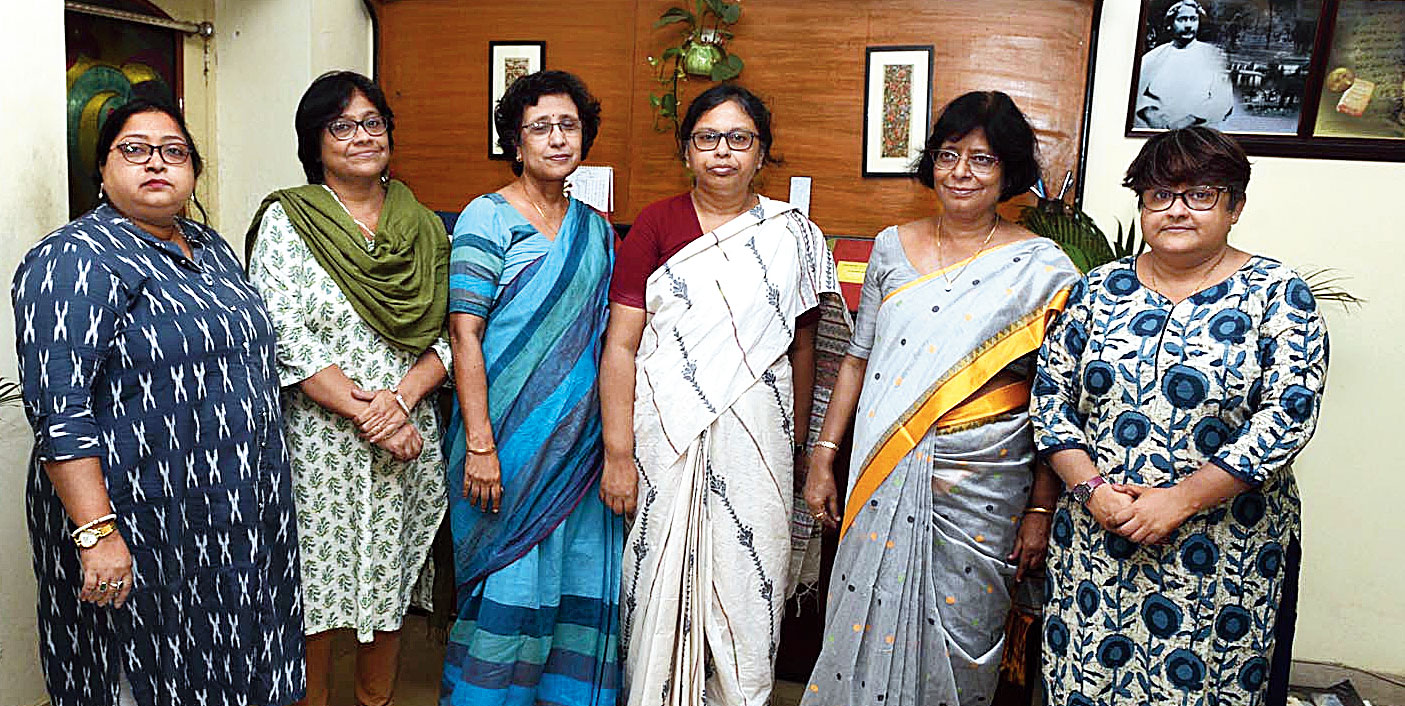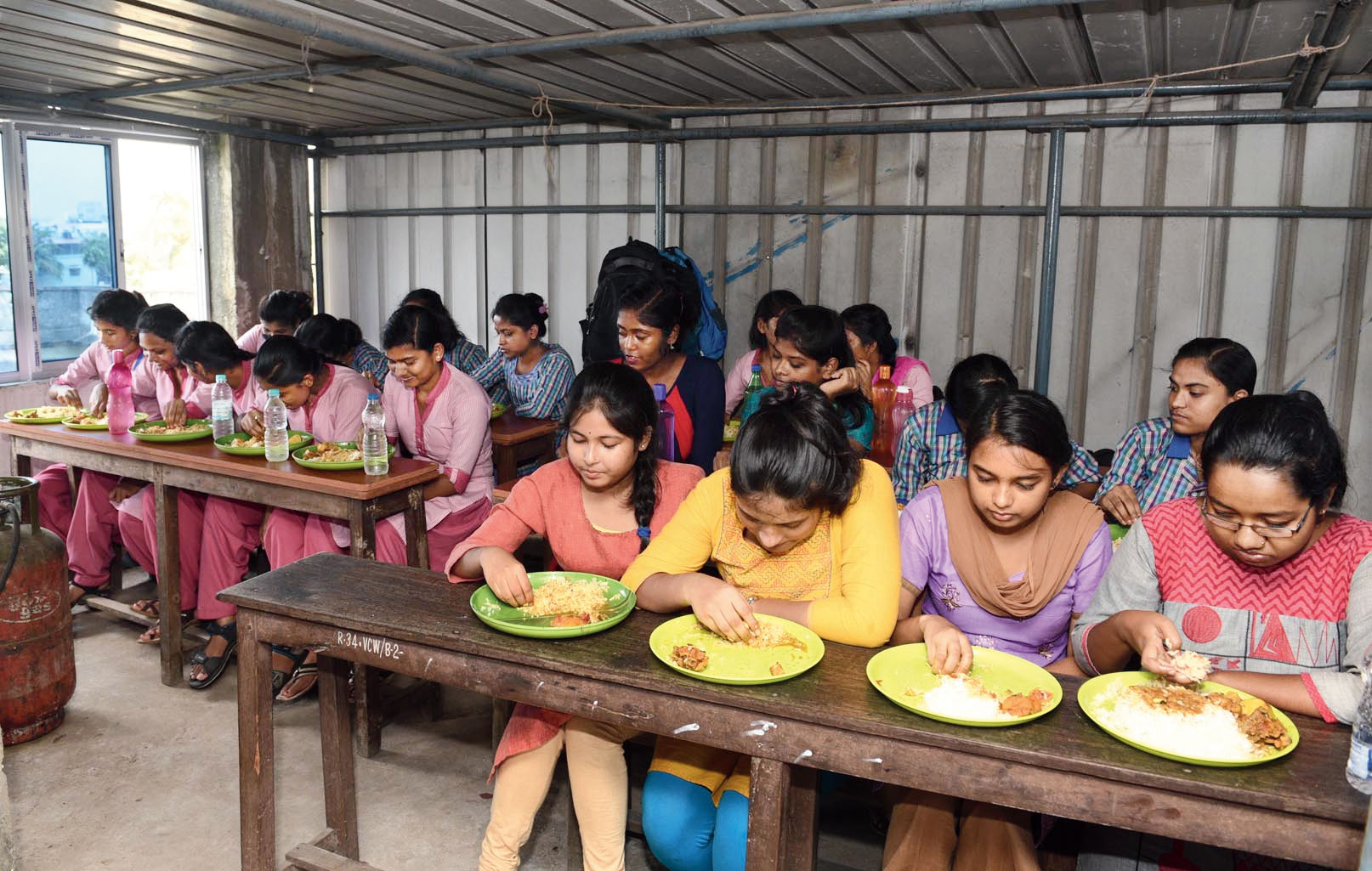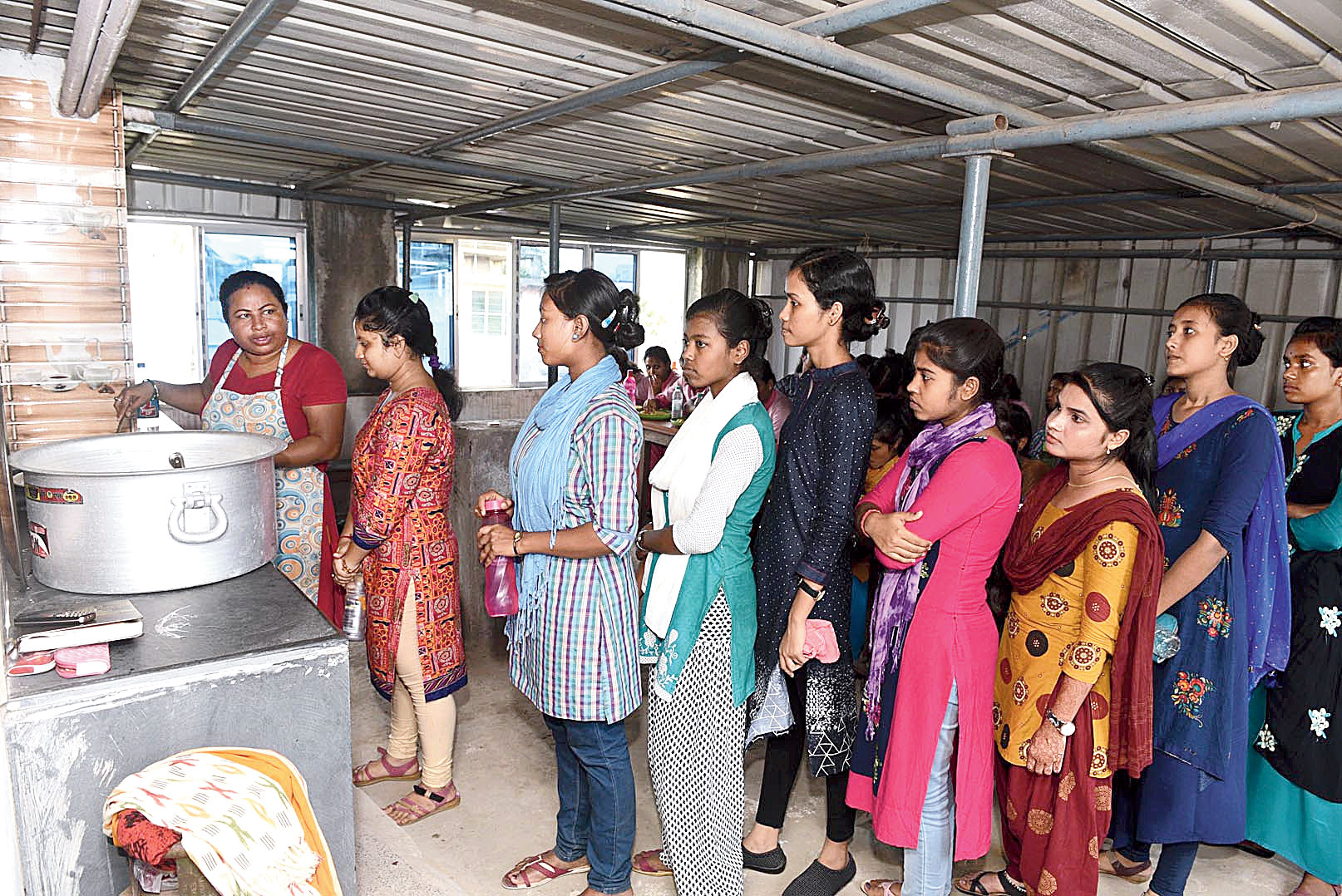Going beyond their call of duty, teachers of a girls’ college on the southern fringes of the city are serving compassion on a platter. Setting a touching example, the teachers are ensuring that several of their students do not go without food or miss classes.
These students who travel from the districts for several hours to reach college hardly have enough money to buy food.
When the teachers came to know about their distress, they pooled in funds to serve them lunch in the college. A heart-warming exception at a time when school managing committees are often being accused of not serving proper midday meal to students and misappropriating taxpayer’s money.
Some of the teachers at Vivekananda College for Women in Behala contribute every month so that the girls, many of who are first generation learners and come from economically deprived families, are able to attend college without having to thing for their lunch.
The initiative that was started by the principal four years ago provide midday meal to around 60 students in the college. She later appealed to her colleagues to “contribute voluntarily” as there was need for more funds with the number of girls wanting the meal went

Some of the college teachers, including the principal (second from right), who contribute funds for the midday meal Picture by Gautam Bose
Why was it introduced?
The principal felt the need to ensure that the girls did not miss their classes because they couldn’t afford to buy food. Several of them come from families where their parents have not gone to school and for many of them giving up is far easier than continuing.
“I noticed that the girls were missing classes and their grades were falling as well. When I asked them they said that they had to travel for several hours and would feel hungry by the end of the day and hence would go back home instead of attending classes,” said Soma Bhattacharya, principal of the college.
“The girls who are availing of midday meals need the nutrition, which they otherwise don’t get,” she added.
The college starts at 10am and gives over at 4.30pm. Many of the girls come from areas such as Diamond Harbour, Lakshmikantapur and Budge Budge. “The money which they bring from home is mostly spent on conveyance,” said Bhattacharya.

Students have lunch in the college Picture by Gautam Bose
When did it start?
The initiative started in 2016 and initially there were about 20 students. With each year the number of girls asking for meals kept increasing. Initially, they were a little shy but gradually they began to apply for the meal.
With the headcount increasing, it was getting difficult for the principal to continue the project on her own. It was then that she appealed to her colleagues because she wanted to continue the project.
With the canteen becoming too small to accommodate the students, the arrangement had to be shifted to another part of the college.
Each of the teachers started to contribute Rs 1,000 every month to keep the project running. Initially they had shelled out Rs 2,000 each to get cooking equipment such as a cylinder, gas oven and utensils.
“Many of the girls were inattentive in class. If they were unable to follow what was being taught in class, the purpose of being in college was getting lost,” said Sumona Das, who heads the economics department in the college.
The selection process
The students are selected on mainly two parameters — their economic status and the distance they have to travel to college. The girls have to apply on the basis of which teachers speak to them about their background. Last year, the college had asked the students to provide income certificates and address proof but realised it was difficult for many to produce documents.
“For many of them to get those documents would take a few months. We realised it was becoming a pointless exercise. So we speak to them and get a fair idea of their need,” said Bhattacharya.
Many of the girls are first generation learners and their mothers work as helps and fathers are rickshawpullers, plumbers or masons. They prefer the college not just for the reputation but because it is only for girls.
Parents of most of these girls have not studied beyond the primary level. For them to travel so far for education is a big challenge and the college came forward with the project to ensure that the students are able to complete their degrees, said a teacher.
“I leave home by 6.30am to attend a tuition class and from there I head for the college. By the time I get back home it is evening. Even if I carry money to buy tiffin it is not enough to buy a proper meal like what the college serves every day,” said Reba Mistry, whose father is a plumber and has studied only up to Class IV.
The people behind
Apart from the principal, Soma Bhattacharya, the teachers who are contributing to the project include Sunanda Ghosh and Swapna Roy (Bengali department), Rikta Joardar (geography), Sumona Das and Jayati Bhattacharya (economics), Minu Sinha Ratna (political science), and Tamasa Chatterjee (philosophy).
The idea is not to make the girls feel grateful, but to give them some food so that they do not have to skip classes for want of food, said a teacher, who contributes to the project.
“We tell the girls that it is not that they should feel grateful that the teachers are providing them with lunch. It is not that we are able to give all meals to them but only once a day,” said Sunanda Ghosh.











